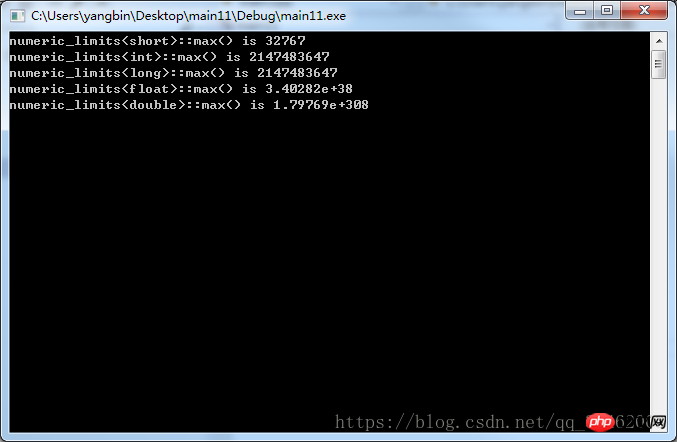
This article mainly introduces how to obtain numerical extreme values in C++. The editor thinks it is quite good. Now I will share it with you and give it as a reference. Let’s follow the editor and take a look
include <iostream>
#include <limits>
using namespace std;
#define L_VALUE(a) (cout<<(#a)<<" is "<<(a)<<endl)
#define L_ADDR(a) printf("%p\n", a)
int main()
{
L_VALUE(numeric_limits<short>::max());
L_VALUE(numeric_limits<int>::max());
L_VALUE(numeric_limits<long>::max());
L_VALUE(numeric_limits<float>::max());
L_VALUE(numeric_limits<double>::max());
getchar();
getchar();
return 0;
}
Related recommendations:
Numerical analysis: data interpolation method
The above is the detailed content of How to get the extreme value of a numerical value in C++. For more information, please follow other related articles on the PHP Chinese website!
 What are the differences between c++ and c language
What are the differences between c++ and c language
 Recommended learning order for c++ and python
Recommended learning order for c++ and python
 Cost-effectiveness analysis of learning python and c++
Cost-effectiveness analysis of learning python and c++
 Is c language the same as c++?
Is c language the same as c++?
 Which is better to learn first, c language or c++?
Which is better to learn first, c language or c++?
 The difference and connection between c language and c++
The difference and connection between c language and c++
 C++ software Chinese change tutorial
C++ software Chinese change tutorial
 Cost-effectiveness analysis of learning python, java and c++
Cost-effectiveness analysis of learning python, java and c++




